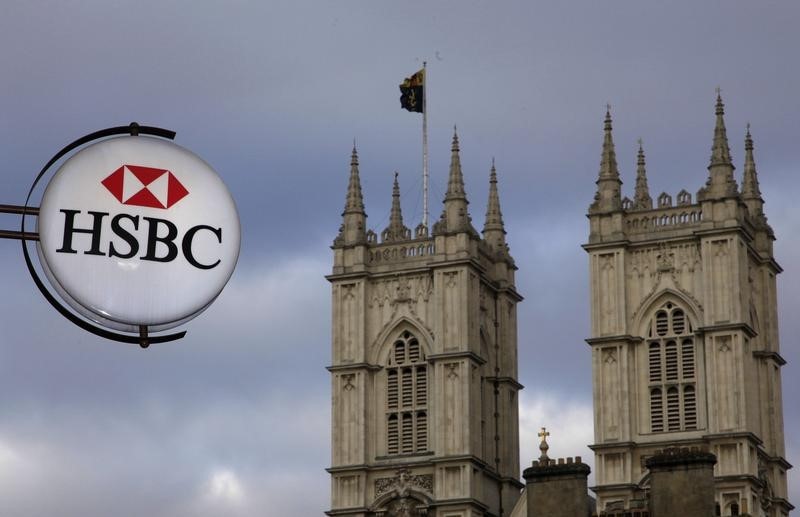By Michelle Price and Lawrence White
HONG KONG (Reuters) - A move by British banking giant HSBC (LONDON:HSBA) to relocate its headquarters back to Hong Kong would present major challenges to the city's banking watchdog, regulatory experts said.
The Hong Kong Monetary Authority (HKMA) is regarded as one of Asia's leading regulators and has experience with subsidiaries and branches of large banks. But it has never been the primary regulator of a systemically important global financial institution.
HSBC's $2.6 trillion balance sheet is nearly eight times the size of Hong Kong's economic output. So the HKMA would have to scale up its regulatory operations, analysts and regulatory experts said.
"Can HKMA regulate an institution the size of HSBC? They would have to hire in more staff, expand the scope of their coverage and communicate more with other regulators," said Jim Antos, bank analyst at Mizuho Securities Asia Ltd in Hong Kong.
HSBC said on Friday it had ordered a review into whether it should move its headquarters out of Britain and potentially back to its former home in Hong Kong, saying the move came in response to shareholder prompting. HSBC shares have rallied in London more than 5 percent since Thursday.
After the collapse of Lehman Brothers in 2008, the Group of 20 leading economies agreed that the world's largest global banks should be subject to tougher capital requirements and closer supervision compared with other lenders.
That means regulators overseeing those institutions need to devote many more resources to supervising them than they would have done a decade ago.
"One of the major issues for primary regulators is ensuring banks are not too big to fail. The relocation of such a big, global institution to Hong Kong would bring a range of new risk management challenges for the HKMA," said Benedict Cheng, managing consultant and chief operating officer at financial consultancy GreySpark Partners in Hong Kong. "They have expertise, but it would be a steep learning curve."
The HKMA said on Friday it would adopt a "positive attitude" should HSBC return to the territory. On Monday, an HKMA spokeswoman said the regulator could not comment in detail on its ability to regulate a bank of HSBC's size.
But the size of HSBC relative to Hong Kong's economy should not be a cause for concern because international regulators are devising rules for resolving bank failures without using public funds, she said.
HSBC in Hong Kong declined to comment on Monday about the relocation review.
The HKMA is also Hong Hong's central bank. As of January, it had 841 staff, its annual report shows, 279 of whom work directly on banking conduct, policy and supervision.
Structural differences in the UK and Hong Kong's banking regulatory regimes make direct staffing comparisons tricky though.
The Bank of England's Prudential (LONDON:PRU) Regulatory Agency (PRA) has 1,045 staff, its 2014 annual report shows and the PRA says 212 of them are dedicated to the largest 25 firms. UK banking supervision is split with the Financial Conduct Authority.
Founded 150 years ago as the Hongkong and Shanghai Banking Corporation, HSBC issues most of the territory's bank notes and has made $24 billion in profits in Hong Kong over the last three years, compared with a $4 billion loss in Britain over the same period. It moved from Hong Kong to London in 1993 when it bought Midland Bank.
In a note published Friday, Morgan Stanley (NYSE:MS) analysts questioned whether Hong Kong was large enough to serve as the lender of last resort to HSBC, and suggested the HKMA may offset the additional risk by requiring the bank to hold more capital.

"We would expect exceptionally conservative regulation from the HKMA," they said.